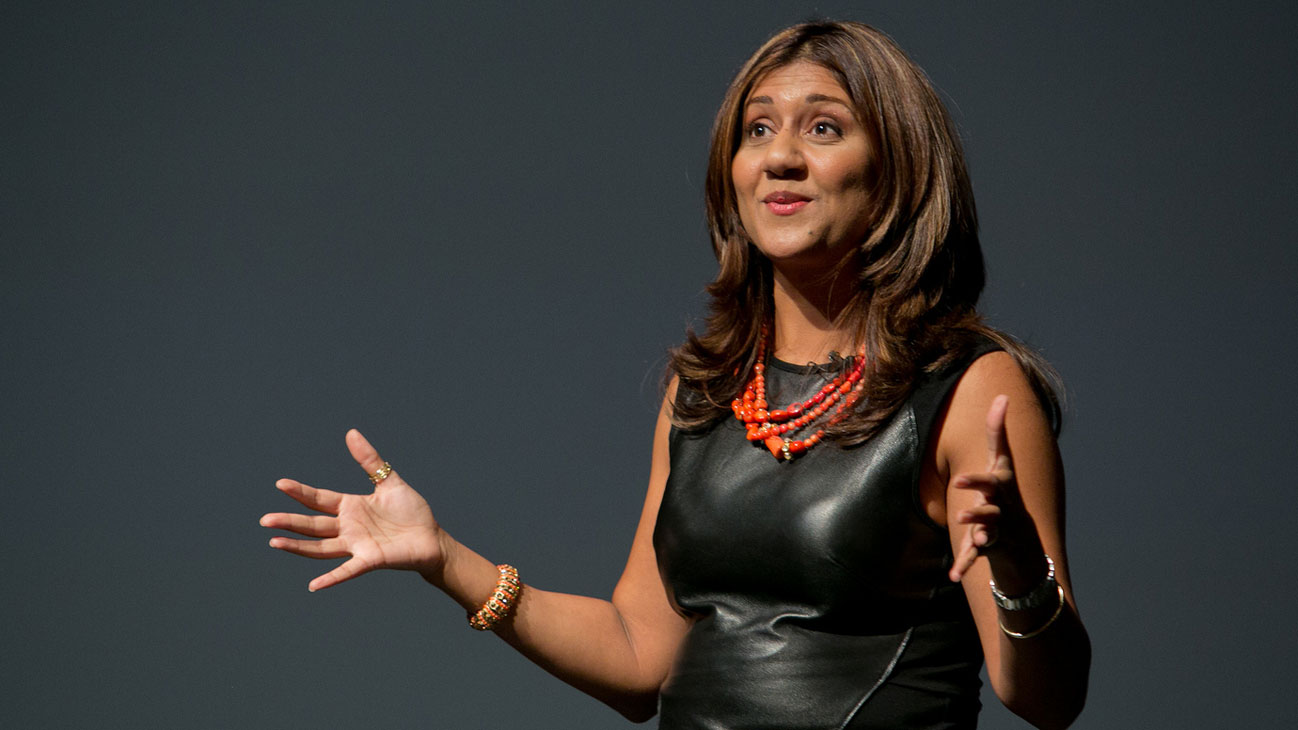A bestselling author on innovation and collaboration, a TED speaker, and a business leader with 20 years of experience, Nilofer Merchant challenges audiences to do more than just think differently—she asks them to act differently. Merchant has personally launched more than 100 products that, in total, have netted 18 billion dollars. Her leadership and business models encourage innovation and growth, and she collaborates with teams to create this enduring advantage. Offering prescient guidelines for taking the future into your own hands, Nilofer brings her world-class pedigree to any stage. Below, Nilofer discusses how to maximize technology and social networking to collaborate in today’s business world with Fast Company magazine:
What role does collaboration play in a winning team?
A winning team is a team that crosses the finish line together. Or knows how they contributed to one another in getting that goal done. It’s a team that understands that what they did together was more important than each one did apart. It’s not that you just have to score one thing, it’s that you get to do it over and figure out what to do. Which means that you’re not perfect. It doesn’t mean that you get every single thing right, it’s that you know how to adapt to what’s actually going on, what just happened, say, on the field, and then adjust.
What does it mean to see a big idea through?
In order for a big idea to come all the way through market, an organization must do three things:
1. Secure talent in the organization.
2. Maintain a purpose that causes your team to be motivated. Purpose brings out the best people, and the best in people… not money. And so when we have people highly aligned by purpose all of a sudden you have teams really rocking.
3. Promote a culture that lets you bring out the very best in you. Not just a little microcosm, a little part of you that is the work part, but all of you. And when you do that what ends up happening is you become fully alive when you work. And so does everyone else.
Tech vs. Relationships
Technology has been a wonderfully seductive thing. But we often get infatuated by the technology of the day rather than people and the way people work together. The shift is actually this. Relationships are to the social era what efficiency was to the industrial era.
Efficiency was all about how fast did you do what you did yesterday, and better. Relationships are about trust. How much do I understand and want to work with you. That’s going to make me show up more. That’s why relationships are so central to the work that we’re doing today. When we didn’t have great technology that connected us, then you were limited to the tribe that you could find near you. Where you live, what family you grew up in. What socioeconomic status you are in. The buckets that maybe contained you. The most interesting thing about technology is how you can find one another now. People of passion, the people of interest, who may not live anywhere near me, but we can still find each other. I’m interested in collaboration and I now can be connected to the twenty other people who are interested in collaboration. Or if I am interested in the econo-metrics of the social era and how we measure prosperity differently, those people can find me too. We are able to have a conversation based on content, not just based on location or proximity. That’s what’s going to allow us to move past proximity into purpose at a deeper level.
Nurturing Onlyness in employees
The industrial era had a set of metrics that were all about efficiency. Today, we are moving into a new phase where it’s about social beings being connected together. If you look at all the econo-metrics of what we’re measuring, we’re measuring efficiency. We’re not measuring for joy, we’re not measuring for purpose, we’re not measuring for impact. We’re measuring for efficiency. What strikes me is that we are going to have a series of new conversations about values created from people and people remaining highly connected together. What we should and could measure in this new era of connectivity is prosperity without focusing so much on monetary values. This major shift is going to cause us to have different conversations among leaders, globally, business wise, and then locally. How do we actually bring out true prosperity?
Co-creating the Future
I have this funny phrase that I wrote in the first book that a lot of people quote back to me. , “The future is not created, the future is co-created.” And what I’m trying to say is, we do this thing where we diminish all group work and we say it’s about this particular hero or characteristic, but that undermines and underestimates the value of the larger community. Even the ideas you’ve learned, you were taught with professors, or even by your friends or by your family. You are a function of the community in which you’ve lived and how you’ve grown. But so is all work. As we come together it’s about us building on each other’s ideas. And so we’ve got to figure out how to actually celebrate the co-creation part, and not just the creation part. That’s actually how all good ideas become real.

